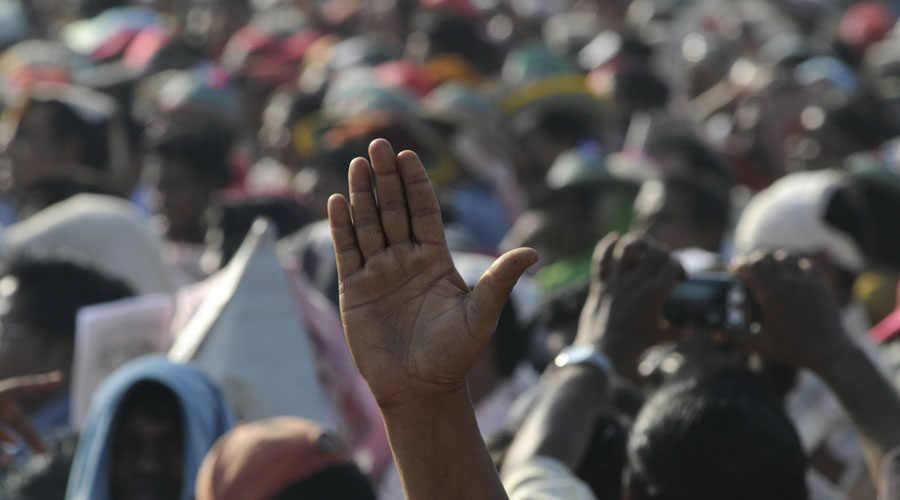The arrest of Umar Khalid. The NIA summons to scientist Partha Sarathi Ray. Pushing a farm bill “inimical” to farmers’ interests.
The coronavirus had put the brakes on the massive protests in the city against the new citizenship regime. A series of “anti-people decisions” by the Centre “in the backdrop of the pandemic” has triggered a call to revive the movement against the Centre.
A string of organisations, which were at the forefront of the rallies against the Citizenship Amendment Act, the National Population Register and the National Register of Citizens, will have members assembling at the Phoolbagan crossing at 4pm on September 23.
The key demands that will be raised at the “Assembly against RSS/BJP” are:
⚫Withdrawal of NRC-NPR-CAA
⚫Immediate and unconditional release of political prisoners
⚫Steps to curb rising unemployment
“Under the garb of the pandemic, the government is taking one anti-people decision after another; and in the process, trying to throttle the mass movement against the citizenship thrust,” a statement issued by the organisers said.
Representatives of various student organisations and citizens’ forums held a meeting on College Street on September 13 to discuss how to revive the mass movement against the Centre.
“Over the past few months, the Centre has used the pandemic to stifle dissent. The perpetrators of Delhi riots are free. People fighting for the Constitution are being jailed,” Soumya Sahin, a political activist who is among the organisers of Wednesday’s assembly, said.
Sahin, an assistant professor at the National University of Juridical Sciences, cited how poor students missed the JEE Mains and NEET exams because they were caught in the middle of the pandemic. “This is the politics of exclusion. The same exclusionary tactic is fuelling the citizenship thrust. We have reached a stage where hitting the streets is the only option.”
Biplab Bhattacharya of “No NRC” movement said the state exchequer had been “sustaining itself by selling PSUs”. “Unemployment is at its peak. Farmers are protesting against the new bills. And the government is busy with Ram Mandir and vote-bank politics. We have to fight this government with full strength… it can’t be done sitting at home.”
Prasenjit Bose, a convener of the Joint Forum Against NRC, said the Centre had made it clear in the past few months that it would use the pandemic to crack down on the Opposition. September 23 will be the “first step” towards a renewed people’s movement, he said.
“The protests will be scaled up in the coming days,” Bose of the Joint Forum Against NRC said.
Last winter was marked by protests against the NRC-NPR-CAA across the city. The rallies were not marked by political flags but Tricolours and passionate slogans. People from all faiths and various walks of life had joined in the protests “to save the values embedded in the Constitution”. At the forefront of the protests were women, many of them in burqas and hijabs.
If Park Circus Maidan — witness to a marathon women-led vigil against the citizenship thrust — was Calcutta’s Shaheen Bagh, mini demonstrations had been held on Zakaria Street, in Kidderpore, Rajabazar and many other places.
“It is a moment of extreme empowerment and liberation… especially for young Muslim women and I think it’s just beautiful,” author Arundhati Roy had told a Calcutta audience in January.
The protests stopped when the pandemic struck.











